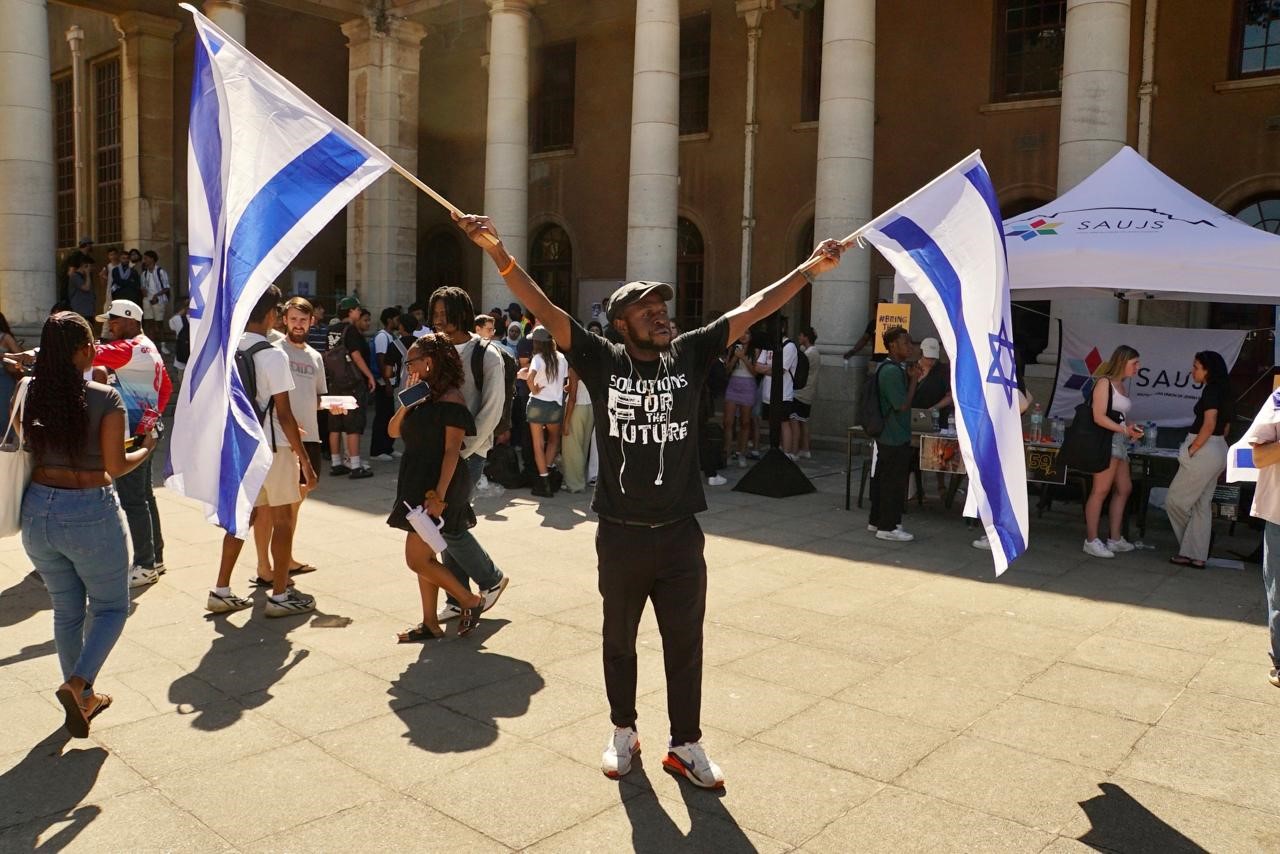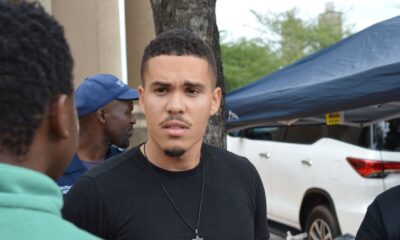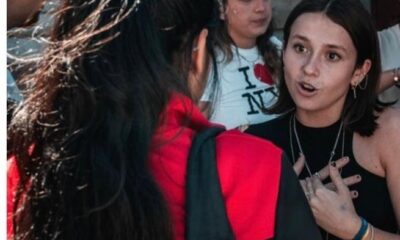
OpEds

SAUJS turns anti-Israel hostility on its head
For nearly 20 years, IAW (Israeli Apartheid Week), held on university campuses around the world, has been a malicious attempt to delegitimise the Jewish state of Israel and make the allegation that Israel has become an “apartheid state”.
As the years have passed, the anti-Israel messaging has become more militant, from apartheid claims to genocide accusations, from calls for resistance to calls for intifada, from defamatory statements to threats.
However, despite this increased aggression, SAUJS’s (the South African Union of Jewish Students’) opposition to these untruths has become stronger, louder, and more powerful. This year on South African university campuses, the pro-Israel narrative became the dominant voice.
Over the past two weeks, SAUJS launched its “For The Future” IAW campaign across the campuses in which it operates, including the University of the Witwatersrand (Wits), University of Cape Town (UCT), and Stellenbosch University.
SAUJS National Chairperson Sasha Said explained that the campaign’s aim was to “to ignite meaningful discussions about the future we want to create as youth and how we, as the global community, can be the driving force behind lasting peace and progress”.
Jacob Boner, SAUJS Wits chairperson, said, “For IAW, we aimed to accomplish two things. First, to ensure that all Wits Jewish students felt as comfortable as possible throughout the week as Jews and Zionists on campus. Second, to spread the message that as Jewish Zionists on campus, we have a voice, one that seeks respect, dialogue, and peace.”
The organisation set up a stand with merchandise, information booklets, and bean bags at one of the busiest walkways on Wits campus. From there, SAUJS members educated and engaged with students from all backgrounds.
On the last day of the week, Boner led a demonstration of support for the remaining hostages in Gaza, in which yellow balloons and posters were displayed for each remaining hostage. Students gathered to say tehillim and sing songs.
The positive response from students became clear as the week ensued. Whether they had a stance on the conflict or had never heard of 7 October before, each student left the conversation more educated and with a new perspective on what Zionism means.
Boner said he felt “immensely privileged to be able to watch the SAUJS Wits committee 2024/25 change perceptions and advocate so strongly for Israel and for peace without backing down”.
Noah Shufutinsky, an Israeli StandWithUs educator, supported SAUJS at Wits. He was impressed that “despite encountering some who came to shut down dialogue with misinformation even to the point of denying atrocities committed by Hamas, SAUJS students were well prepared to turn difficult situations into platforms for conversation to showcase a perspective that bystanders would otherwise never have heard”.
There was a more hostile response to SAUJS at UCT. However, due to SAUJS UCT’s pioneering approach, it was able to transform hostility into meaningful engagement. SAUJS UCT Chairperson Rachel Segal said, “In recent years, IAW at UCT has often failed to foster meaningful dialogue. It has become a platform for division, with rhetoric that polarises students and demonises Jewish students, instead of creating opportunities for understanding.”
So, this year, Segal launched SAUJS’s campaign the week before the Boycott, Divestment, Sanctions coalition’s IAW took place. This way, SAUJS was able to transform the entire experience of IAW at UCT.
SAUJS UCT’s stand was a sight to remember. Many a student wearing a Palestinian keffiyeh was engaged with another student wearing a pro-Israel T-shirt. They were seen to be having meaningful and respectful dialogue, and ultimately to find common ground for understanding.
On the day commemorating the hostages, SAUJS set up 59 yellow chairs, each with a picture of the remaining hostages in Gaza, alongside a cot and toys to pay tribute to the Bibas children.
Angelic Mafadza, an AfricanForPeace activist, said that at UCT “engaging with students who had already decided their stance was difficult, but our focus remained on those listening in the background, those who might not speak but were willing to hear”.
Like Wits, SAUJS was joined by delegates from StandWithUs, who held signs saying, “I am an Israeli and Zionist, come and ask me what that means?” Harel Kleiner, a StandWithUs delegate, said that through his experience with SAUJS at UCT, he realised “just how great we, the Jewish people, truly are, and how amazing it is that all around the world, we share the same values and goals”.
SAUJS’s unwavering commitment to its Jewish and Zionist identity allowed it to move away from “hostility and exclusion and towards positivity, empowerment, and meaningful conversation”, Segal said.
Many people underestimate the impact that SAUJS has on campus. University campuses are the foundation on which people develop opinions, discover who they are, and are exposed to a plethora of information. SAUJS’s commitment, bravery, and resilience allows the voice of the Jewish people and the truth about Israel to be heard on campuses across the country, and for that our community should be eternally grateful.
- Gabriella Farber Cohen is university campus co-ordinator at the South African Jewish Board of Deputies.











Alfreda Frantzen
March 27, 2025 at 1:26 pm
This is awesome. Well done, bravo, to you all.